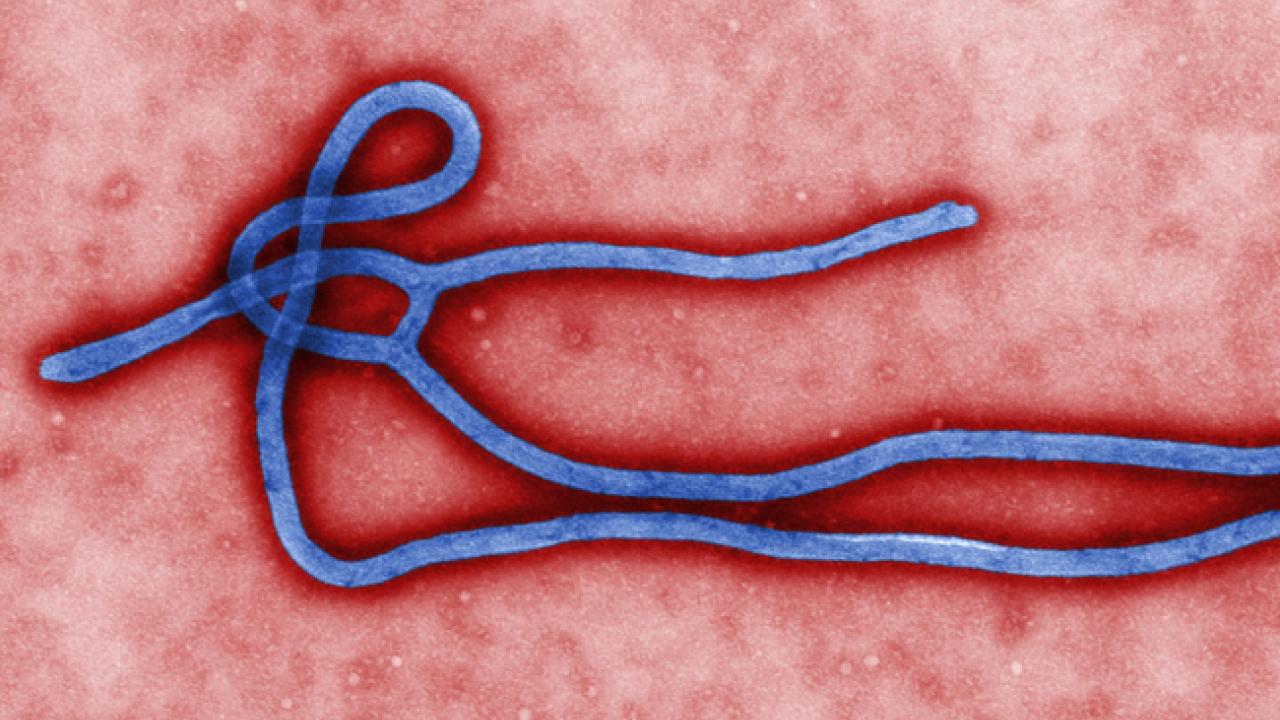
Nonhuman Primates and Ebola Virus Treatments and Vaccines
The recent deadly outbreak of Ebola virus in West Africa has highlighted the key role of nonhuman primate biomedical research in developing critically needed treatments and vaccines for emerging infectious diseases. Scientists around the world have pursued different strategies for development of a preventative vaccine and an effective treatment for Ebola virus disease. There is currently no safe way to test these approaches in humans, but nonhuman primates provide an effective means to determine if these new therapies will be life saving solutions for Ebola virus infection and other emerging diseases.
The National Microbiology Laboratory of the Public Health Agency of Canada in Winnipeg and the U.S. Army Medical Research Institute of Infectious Diseases (USAMRIID) originally developed an experimental triple antibody serum that two American patients received at a hospital in Liberia. The novel antibody therapeutic (ZMapp) is now being produced in tobacco plants by Mapp Biopharmaceuticals, a small biotech company in San Diego. The drug has been tested in rhesus monkeys at the USAMRIID with promising results. Six of 6 monkeys survived exposure to Ebola virus when they received the serum within 1 hour of exposure, and 4 of 6 survived when they received the serum 48 hours post-exposure (Link to scientific article).
It is important to note that ZMapp is not currently approved for human use in North America or any other country, but an IND (Investigational New Drug) for the product is likely to be submitted by the end of 2014. The serum was given under the “compassionate-use doctrine”, which allows not-yet-approved drugs to be given in extreme circumstances with informed consent. Progress on developing a vaccine to protect health workers and at-risk populations has been slow. Last week, the National Institute of Allergy and Infectious Disease (NIAID), a division of the National Institutes of Health, announced plans to expedite research on a vaccine that's been shown to protect monkeys completely from challenge with Ebola. A clinical trial on humans may begin as early as next month. Other articles of interest:
- Science Magazine: Special Collection: Ebola Virus
- Eradicating Ebola: In U.S. Biomedical Research, We Trust
- Animal research behind the scenes in ebola treatment drama
- First Ebola Vaccine Could Be Less Than a Year Away, Scientist Says
- Clinical trial to start soon on GSK Ebola vaccine
- New paper on Ebola–no primate-to-primate transmission seen
- Experimental Ebola drug raises interest, questions
- Cambridge firm’s Ebola drug carries hope, risk
- Secret serum: Liberia Ebola drug used on Brantly is only one of many in development
